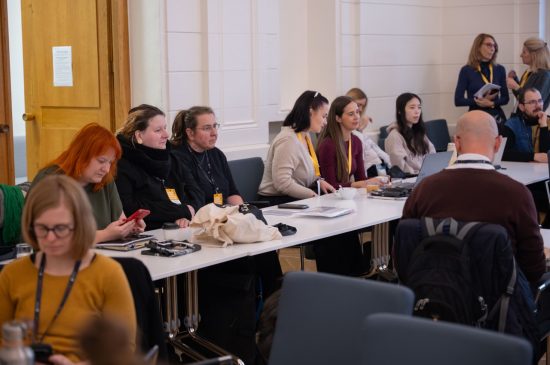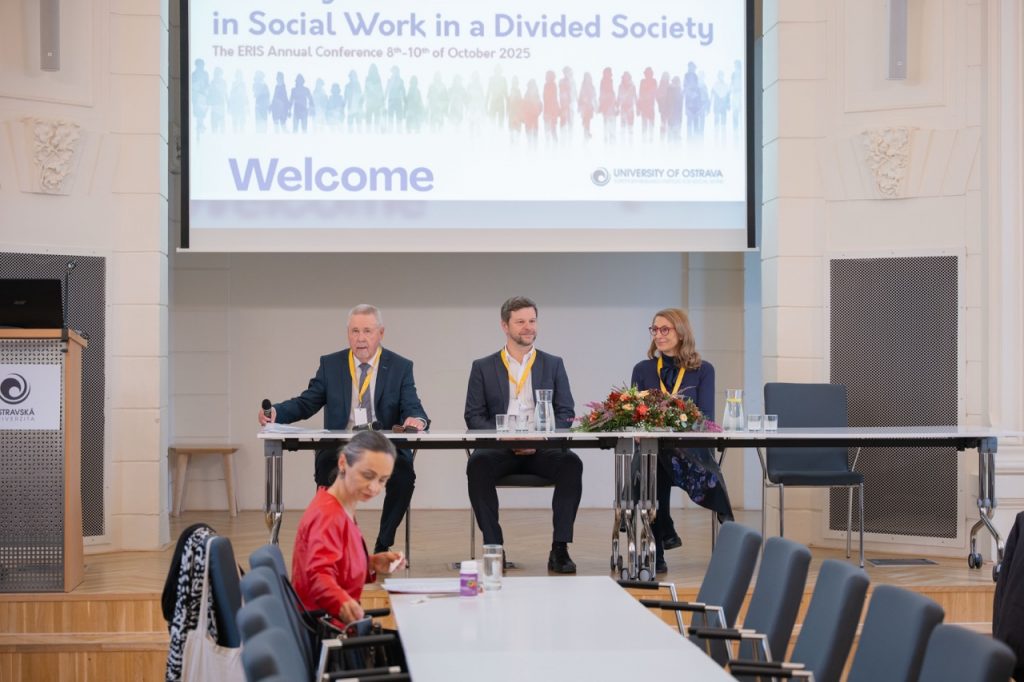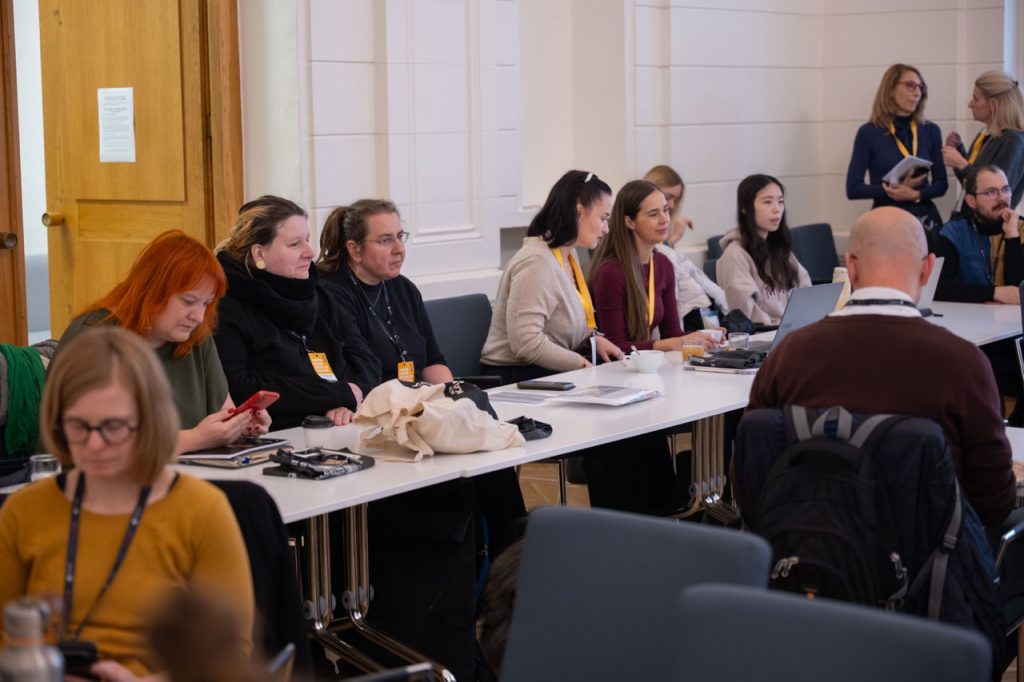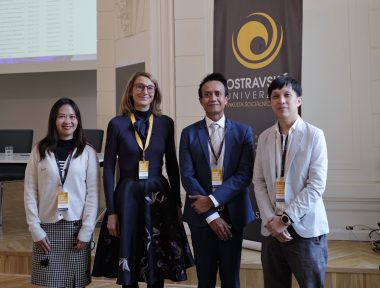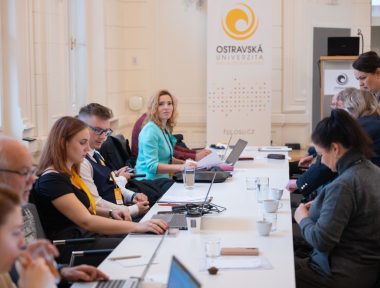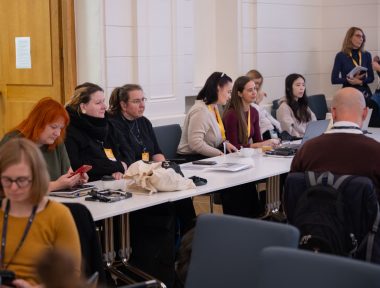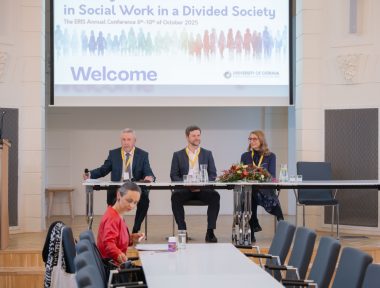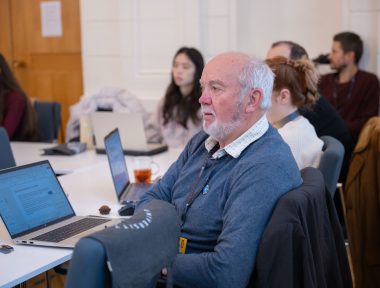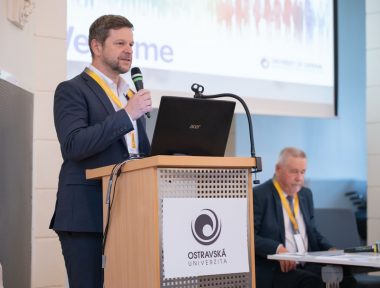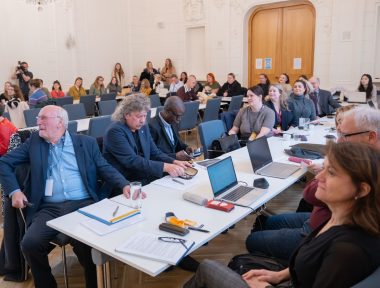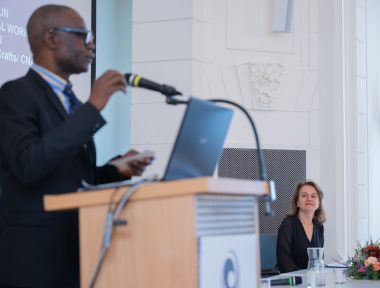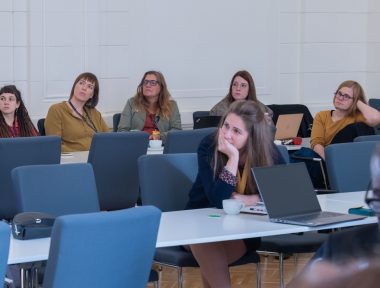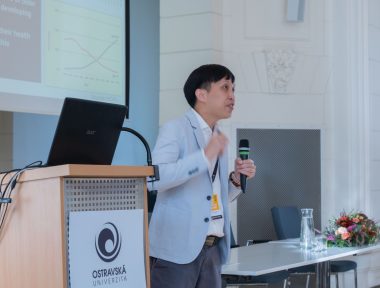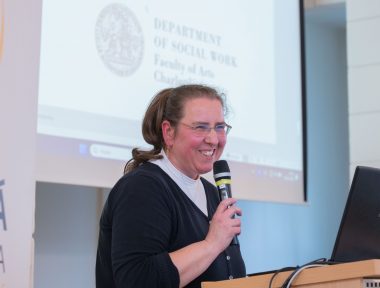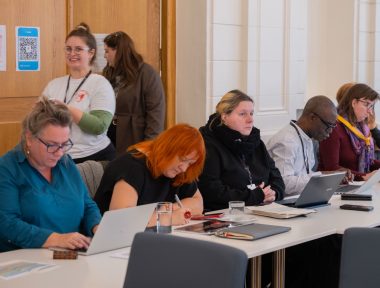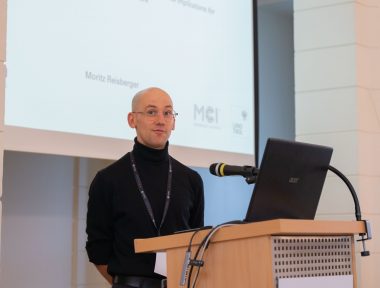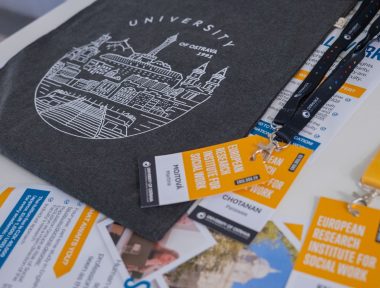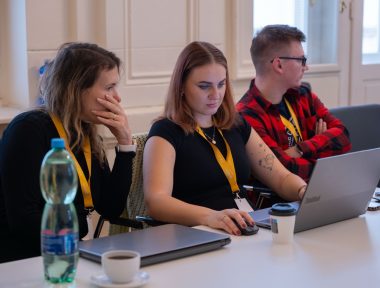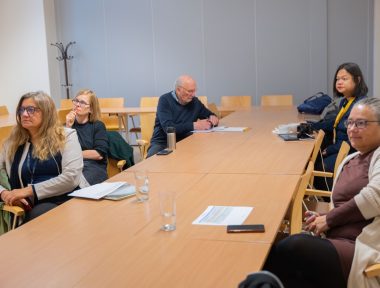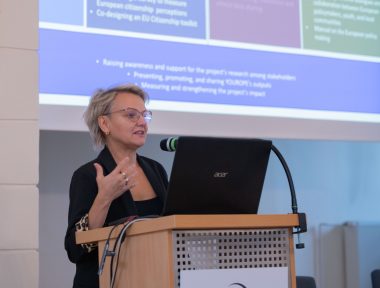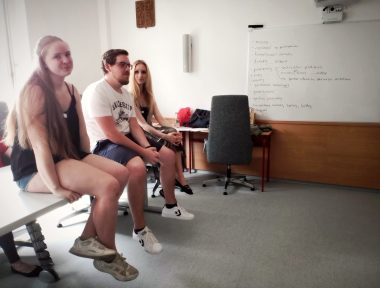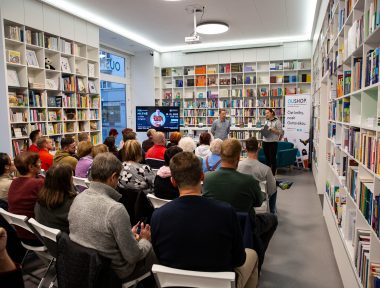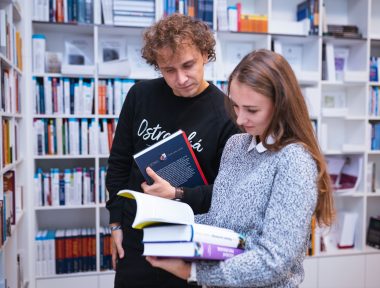From 8 to 10 October 2025, the Faculty of Social Studies, University of Ostrava hosted the 17th annual ERIS conference, Building Resilience in Social Work in a Divided Society. Over the course of three days, experts from 15 European and non-European universities met in Ostrava, with more than 80 participants attending. Together, they discussed how social work can strengthen the resilience of individuals, communities, and society as a whole in the face of growing polarisation, crises, and digital changes.
Three days of inspiration, sharing, and new perspectives
The conference was opened by Assoc. Prof. Petr Kopecký, Rector of the University of Ostrava, and Prof. Soňa Kalenda Vávrová, Dean of the Faculty of Social Studies, who emphasised the importance of international collaboration and research in social work.
The opening morning session, entitled Is Social Work Responsive to Contemporary Social Change?, raised essential questions about how social work responds to the transformations of today’s society.
Speakers included Prof. Oldřich Chytil, Dominik Mácha, and Prof. Jan Keller (University of Ostrava), Prof. Emmanuel Jovelin (Université Catholique de Lille, CNAM Paris), and Prof. Detlef Baum (Hochschule Koblenz).
The afternoon expert session, led by Assoc. Prof. Alice Gojová and Prof. Brian Littlechild, focused on finding answers to the question, “How can we support independent living for people with disabilities without creating new institutions?” This session was closely linked to the currently ongoing GACR 24-10176S research project. The common denominator of the entire section, which was introduced at the beginning by Milena Johnová, was the effort to fulfil the principles of Article 19 of the Convention on the Rights of Persons with Disabilities – ensuring that the process of transforming social services does not stop at a formal level but actually leads to a change in people’s lives.
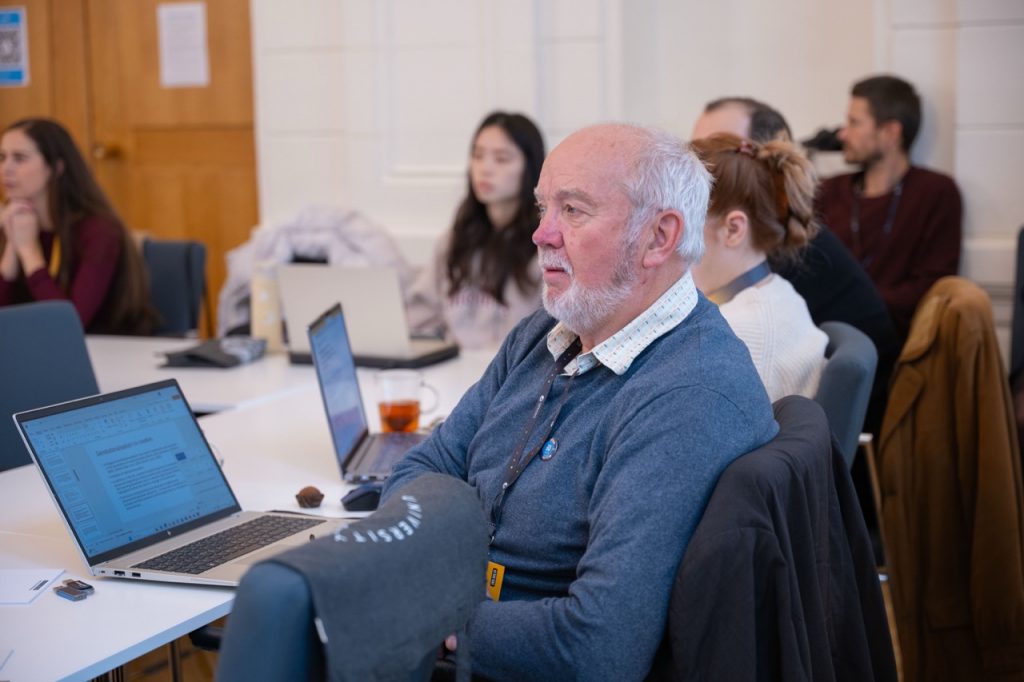
Our researchers, Assoc. Prof. Alice Gojová and Dr. Zuzana Broskevičová, presented the first results of GACR-funded research examining the role of social work in supporting the rights of persons with disabilities to independent living and their inclusion in society. Their paper, “Challenges in the Development of Community-Based Services for People with Disabilities in the Czech Republic,” drew attention to the deep contradiction between the declared support for independent living and the persistent institutional logic in the development of social services. The research shows that without critical reflection on the transformation to date, there is a risk that deinstitutionalisation will only transfer institutional principles—control, dependence, and segregation—to new forms of social services.
For the further development of this research, it was super valuable to learn from experiences from abroad. The session featured inspiring contributions on supporting independent living for older adults in Thailand, on co-creating services with people with disabilities in the United Kingdom, on supporting young people leaving institutional care in Romania, as well as on how the understanding of family and care in social work is changing in Germany and how these changes affect the process of deinstitutionalisation and the support for people in their natural environments.
The discussion showed that although the approaches of individual countries differ, they are united by an emphasis on dignity, participation, and equal opportunities for people who were previously dependent on institutional care. The international dimension of the session allowed for the sharing of experiences from both Europe and Asia and confirmed the importance of international research collaboration in promoting human rights-based community services.
Artificial intelligence, disinformation, and new resilience
The second day brought a diverse range of topics, from community work and alternative approaches to resilience, through the position of social workers in healthcare, to the use of artificial intelligence in social work.
Particular attention was drawn to the lecture by Prof. Walter Lorenz, a legend in European social work, on the topic of Fundamental Social Work Skills in Confronting Current Social and Political Polarisations.
The afternoon session on AI and disinformation was led by Kateřina Mikulcová from the University of Ostrava. Experts from Finland, Austria, and the Czech Republic gave presentations on the new challenges posed by artificial intelligence in relation to the roles of social workers and the ethical issues and dilemmas surrounding its use.
The evening atmosphere was lightened by a social dinner and a guided tour of Ostrava, which revealed participants not only the city’s industrial beauty and lore, but also its current openness and creative spirit.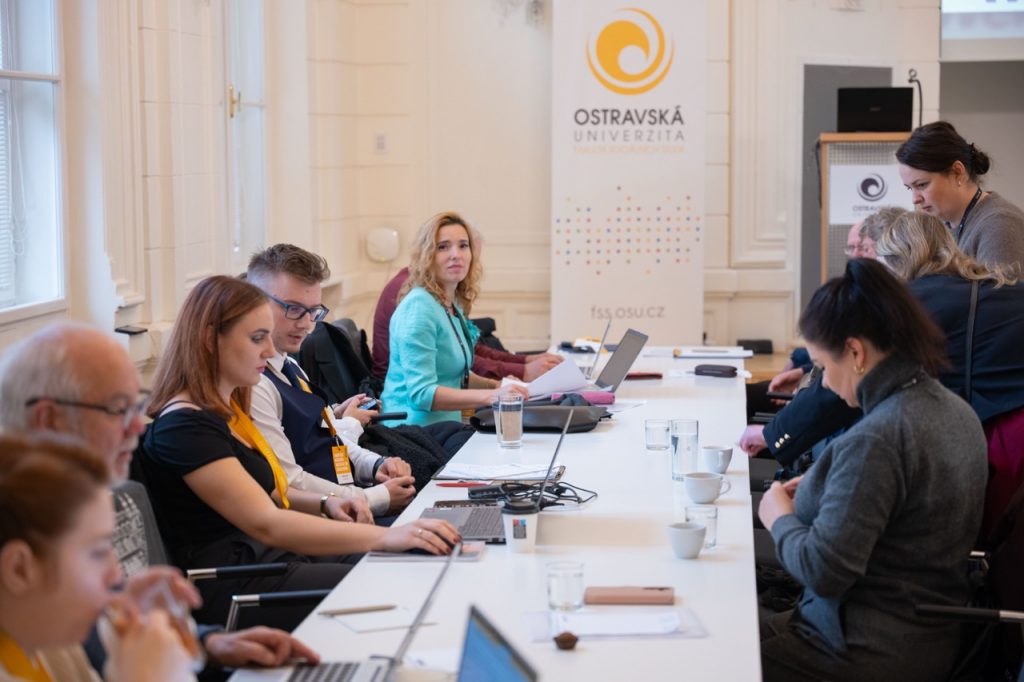
Digitalisation and trust – the closing of the conference
The final day was devoted to the topic of digitalisation and structural perspectives in social work. Experts from Europe and Asia discussed how technology affects equality in access to social services and how trust can be strengthened as a key element of resilience.
The sessions, moderated by Prof. Monika Pfaller-Rott and Dr. Zuzana Stanková, included presentations on topics such as the digital interconnection of institutions involved in social and legal child protection in Thailand, on the workload of professionals in digital environments, and on romantic relationships and mental health among young adults.
The conference concluded in a poster session, where students and researchers presented their current projects, such as volunteering after floods in the Opava region and resilience factors among older adults after the loss of a partner.
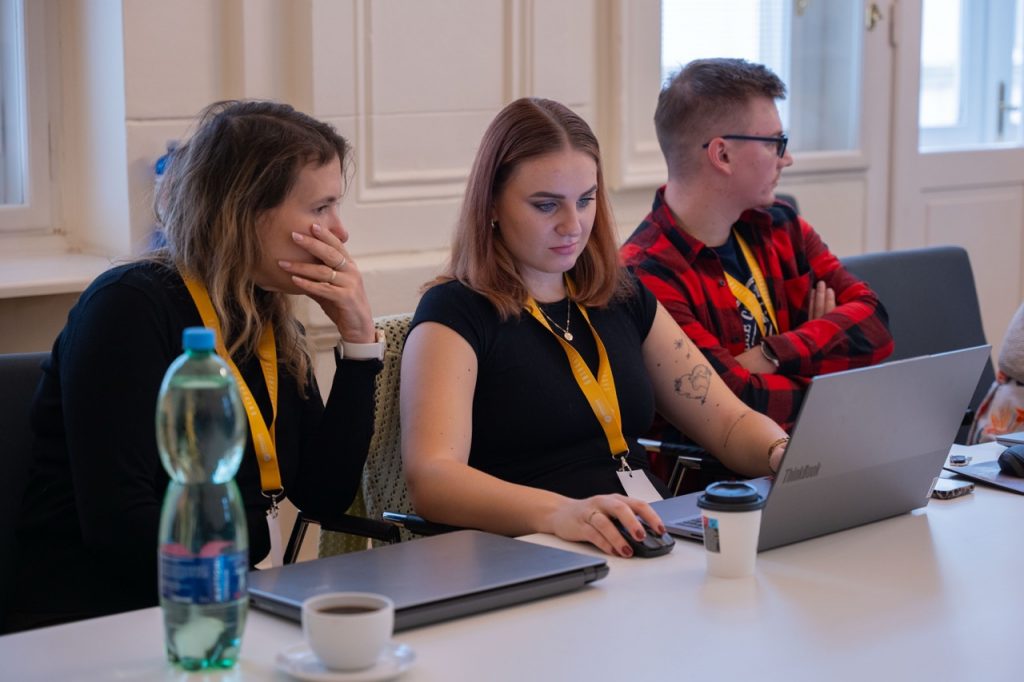
International collaboration and the future of ERIS
ERIS – European Research Institute for Social Work – connects more than twenty universities across Europe and other regions. The conference in Ostrava confirmed that sharing experiences across countries and disciplines is essential for the development of social work, which faces global challenges – from crises and migration to the impacts of digitalisation.


 4 min.
4 min. 